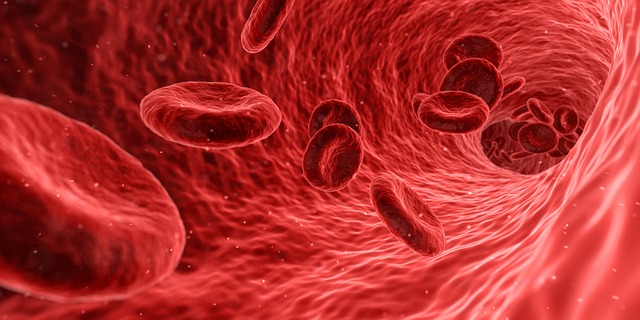
by Dr. Oler, ND | Jun 7, 2018 | detoxification, Eating Naturally, Health and Wellness, Nutrition, Recipes, toxic burden
One of the hardest things for many people trying to live a healthier lifestyle is what to do in social situations when alcohol is available. As a society, we love our booze and it alcohol has become an integral part of many social gatherings and situations. So much so, that it is often deemed odd to not have a drink in hand and many of these events.
Have no fear – we have come up with several ‘mocktails’ that will ease the pressure to drink and allow you to enjoy a refreshing (and hydrating) beverage to boot – Cheers! (more…)

by Dr. Oler, ND | May 17, 2018 | Areas of Weight Loss Resistance, Blood Sugar, Gut Dysbiosis, insulin resistance
It has long been known that consuming too much sugar leads to metabolic changes that result in diabetes, weight gain, obesity and cardiovascular disease. In an attempt to allow people to ‘have their cake and eat it too’ food-stuff manufacturers introduced and heavily marketed artificial sweeteners as a “healthy” alternative to sugar. However, research over the past decade has shown that consuming artificial sweeteners leads to metabolic derangements that actually promote the very things they are marketed to help, namely blood sugar dysregulation, diabetes, weight gain and cardiovascular disease. A new study has begun to show us how. (more…)

by Dr. Oler, ND | May 3, 2018 | Areas of Weight Loss Resistance, Fatigue, Stress and Weight Loss, Thyroid, Underlying Metabolic Imbalances
We see a lot of people that suffer from one or more symptoms attributed to an under-functioning thyroid. Many of these people are on medications to boost thyroid hormone (T4 and/or T3), but find that their underlying symptoms – including fatigue, hair loss/thinning, dry skin or constipation – don’t improve. The reason could be that they are not actually addressing the underlying cause(s) of the thyroid dysfunction; one of those underlying causes is likely adrenal fatigue. (more…)

by Dr. Oler, ND | Apr 19, 2018 | Bone Health, Mineral Absorption, Supplements
Most people never hear of vitamin K until they (or someone they love) are placed on a blood thinner like Warfarin or Coumadin. At that time, these people are told that they need to avoid eating foods that are high in vitamin K. The unfortunate consequence of this can be an increase in atherosclerosis, kidney stones, osteopenia and osteoporosis. And it isn’t necessary. (more…)

by Dr. Oler, ND | Mar 22, 2018 | Health and Wellness, Immune System, Naturopathic Medicine
It’s that time of year again – when we (the general public) are bombarded with various flu-vaccination propaganda lauding the extreme importance and eminent risk of possible death if we don’t get our flu-shot. The government says we should get the flu shot every year, as do many industry-sponsored experts and physicians. But does it work and is it safe? (more…)

by Dr. Oler, ND | Mar 8, 2018 | Menopause, Nutrition, Women's Health
New research has provided further evidence that processed meats can increase the risk of breast cancer. This study, published in the European Journal of Cancer found that women who consumed more than 9 grams of processed meats per day – which is equivalent to around two sausages per week – increased their breast cancer risk by 21%. (more…)

by Dr. Oler, ND | Feb 22, 2018 | Areas of Weight Loss Resistance, Blood Sugar, insulin resistance, Natural Weight Loss, Underlying Metabolic Imbalances
Researchers have been studying the health effects of artificial sweeteners for years; unfortunately, most of the findings show that they are very detrimental to human health. One of the most interesting findings is that artificial sweeteners can actually increase our desire to eat, increase cravings and lead to weight gain; this flies in the face of why most people consume artificial sweeteners, that is, to lose weight. Many studies have shown this to be true, and at least one of the mechanisms thought to cause this weight gain is dysregulation of the how our body controls blood sugar. Now, new research is showing artificial sweeteners can have even more far reaching detrimental effects on our health. (more…)

by Dr. Oler, ND | Feb 8, 2018 | Men's Health, Natural Remedies, Women's Health
Part 6 in this series on antioxidants showed that the Green phytonutrients convey a host of benefits beyond being fantastic antioxidants, including protecting you against many types of cancer and improving eye health. It turns out that the blue and purple phytonutrients can also significantly reduce your risk of cancer while helping provide a broad array of benefits for memory, heart disease and diabetes. (more…)
by Dr. Oler, ND | Jan 25, 2018 | Cleansing, Detox, detoxification, Hormone Imbalance, Hormone Imbalances, Natural Remedies, Nutrition
In Part 5 of this series, we introduced you to the Orange and Yellow Phytonutrients, many of which have been shown to help improve vision and eye health. Many of the foods that contain green phytonutrients also help improve eye health. In addition, the green phytonutrients convey a wide variety of unique health benefits.
Eye Health
Lutein and zeaxanthin are green phytonutrients that have been shown to maintain good vision while reducing the risk of cataracts and macular degeneration. While these two nutrients are widely found in various supplemental formulas, they are also plentiful in foods, including kale, spinach, leafy greens (turnip, collard, and mustard), romaine lettuce, broccoli, green peas, kiwifruit, and honeydew melon.
Cancer Risk Reduction
Another key group of green phytonutrients are the indoles, which includes indole-3-carbinol and diindolylmethane. These compounds are not only potent antioxidants, they have also been shown to convey significant protection against a variety of cancers. In fact, these indoles have been shown to significantly reduce the risk of breast and prostate cancers while reducing the risk of tumor growth in most types of cancer, including melanoma.
Indoles seem to exhibit their cancer-protection by altering estrogen metabolism to produce less-carcinogenic metabolites. It also seems to directly inhibit the growth of reproductive cancer cells. Indoles are readily found in a variety of vegetables, including broccoli, cabbage, brussel sprouts, bok choy, arugula, Swiss chard, turnips, rutabaga, watercress, cauliflower and kale.
Chlorophyll is another potent antioxidant that is found in all green vegetables. Chlorophyll has also been shown to have anti-cancer properties. Research has shown that chlorophyll can bind to potential carcinogens and interfere with how they are absorbed in the human gastrointestinal tract; these studies suggest that these effects help lower the risk for certain types of cancers, including liver and colon cancer.
Another group of antioxidants that have been found to reduce the risk of cancer are the Blue & Purple Phytonutrients; these will be the subject of our next post.
References
- Hsu, J; Dev, A; Wing, A; Brew, C; Bjeldanes, L; Firestone, G (2006). “Indole-3-carbinol mediated cell cycle arrest of LNCaP human prostate cancer cells requires the induced production of activated p53 tumor suppressor protein”.
- Kima DS, Jeong YM, Moon SI, Kwon SB, Park KC (2011).” Indole-3-carbinol and ultraviolet B induce apoptosis of human melanoma cells via down-regulation of MITF” Pharmazie.Dec;66(12):982-7.
- Kundu A, Quirit JG, Khouri MG, Firestone GL (2017). Inhibition of oncogenic BRAF activity by indole-3-carbinol disrupts microphthalmia-associated transcription factor expression and arrests melanoma cell proliferation. Mol Carcinog.;56(1):49-61.
- Kundu A,Aronchik I,Quirit JG, Firestone GL (2014). The antiproliferative response of indole-3-carbinol in human melanoma cells is triggered by an interaction with NEDD4-1 and disruption of wild-type PTEN degradation. Mol Cancer Res.;12(11):1621-1634.
- http://lpi.oregonstate.edu/mic/dietary-factors/phytochemicals/chlorophyll-chlorophyllin










